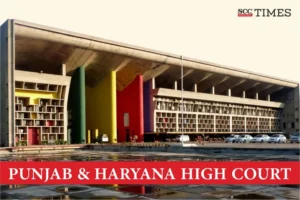Punjab and Haryana High Court: In a case wherein petitioner was not given actual appointment because of the prevalent Model Code of Conduct (‘MCC’) issued by Election Commission of India (‘ECI’), Rajbir Sehrawat, J., opined that there was no clause in the MCC under which issuance of appointment, even pursuant to the High Court’s order might be required to be kept in abeyance, and this was an unnecessary excuse taken by Respondent 2. The Court opined that the authorities were fully authorized and were under a legal duty to execute the orders of the High Court without any specific permission from or intervention of the ECI. Therefore, the Court clarified that the States of Punjab and Haryana and Union Territory of Chandigarh should comply with the orders passed by the High Court irrespective of the enforcement of MCC on account of Lok Sabha elections or any other elections, unless the orders passed by the High Court were specifically stayed by some appellate court.
Background
In the earlier proceedings in the present case, respondents had intimated that the petitioner’s name had been recommended for appointment by Respondent 1 for the post of male constable (GD) and thereafter, it was Respondent 2 who was to give actual appointment to petitioner. Thereafter, adjournment was sought, and the case was adjourned by specifically ordering that no further adjournment should be granted. Further, clarification was issued that in case of non-compliance, Respondent 2 should remain personally present before this court on the next date of hearing. However, even in the present proceedings, no appointment letter was issued to petitioner and Respondent 2 was also not present in the Court.
Respondents submitted that although Respondent 2 had issued orders for appointing petitioner, but the actual appointment could not be given to him because of the prevalent MCC issued by the ECI due to Lok Sabha elections.
Analysis, Law, and Decision
The Court opined that there was no clause in the MCC under which issuance of appointment, even pursuant to the High Court’s order might be required to be kept in abeyance, and this was an unnecessary excuse taken by Respondent 2. The Court further stated that it had also come across number of cases where the State of Punjab and Haryana as well as Union Territory, Chandigarh had been taking a stand that orders of the High Court could not be complied with in respective cases on account of prevalent MCC. Therefore, it had become necessary to clarify that no code of conduct issued by ECI or any order/instructions issued by any authority could be permitted to stand in the way of the execution of the High Court’ order.
The Court opined that the authorities were fully authorized and were under a legal duty to execute the orders of the High Court without any specific permission from or intervention of the ECI. Therefore, the Court clarified that the States of Punjab and Haryana and Union Territory of Chandigarh should comply with the orders passed by the High Court irrespective of the enforcement of MCC on account of Lok Sabha elections or any other elections, unless the orders passed by the High Court were actually and specifically stayed by some appellate court.
The Court further clarified that no further excuse of prevalence of MCC should be entertained by this Court as a ground of non-compliance of orders passed by the High Court and stated that the copy of the present order should be sent to Chief Secretaries of Government of Haryana and Punjab respectively, and Administrator of Chandigarh for their knowledge and necessary compliance, and also for onward communication of this order to all the departments under them.
The matter would next be listed on 10-05-2024.
[Naresh Kumar v. Haryana Staff Selection Commission, 2024 SCC OnLine P&H 2847, Order dated 24-04-2024]
Advocates who appeared in this case :
For the Petitioner: Rajat Mor, Advocate;
For the Respondents: Amit Aggarwal, DAG, Haryana.

